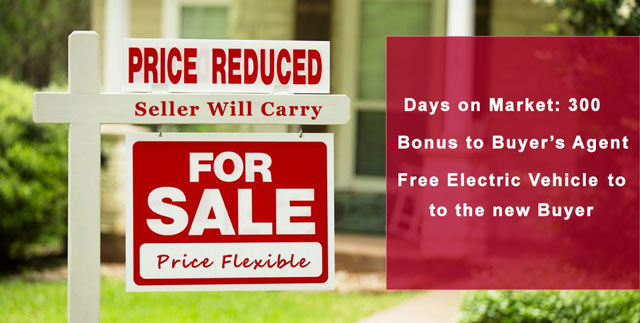7 Tips for Real Estate Agents to Be Successful in a Declining Market
When the real estate market turns downward, do you feel like it’s a race to the bottom? Do your competitors drop their commission rates to secure listings? As salespeople, realtors love the highs of a busy season, but as the saying goes, “what goes up must come down,” and the same is true for the real estate industry. So, since downturns are inevitable at some point, it’s essential to know the proper steps to take to survive. Today, we’ll discuss 7 tips for real estate agents to be successful in a bad market.
#1 Use Your CRM To Stay In Front Of Clients
Customer relationship management (CRM) tools are vital to succeed in a bad market. If you don’t have a CRM right now, don’t wait any longer to invest in one! It’s the perfect tool to manage all of your clients in one place and ensures that you’re keeping your name in front of them.
#2 Show Your Contacts Who You Are As A Person First & A Realtor Second
Recession-type atmospheres are tough for everyone. And there are only so many business communications that people can receive before the sender is completely tuned out. For this reason, you should try to get to know your clients and show them that you are a human who cares, rather than just a salesperson offering help with a transaction.
#3 Turn Your Business Virtual
As you’ve probably seen over the past year, many real estate agents moved their business to virtual. Doing so allows you to get the most out of your time. For example, you can conduct virtual showings, listing presentations, buyer consultations, and more from the comfort of your home office.
#4 Create A List Of Short-term Goals
Market conditions can vary greatly, especially during a bad market, making quarterly or yearly goals impossible to create and achieve. Many successful agents have found that creating short-term, weekly goals can curb frustration. It’s also helpful to begin measuring success by the work that was completed rather than the results. If there just aren’t people buying or selling, the fruits of your labor may be delayed, so in this type of market, only worrying about results is not a good measure of success.
#5 Create A Contingency Plan
The worst part about a bad market is that fewer commissions will go into the bank. For this reason, you should always have a contingency plan that includes a financial safety net. Perhaps the best way to go about this, as an agent, is with home equity. Since most realtors are also homeowners, they probably have equity in their property that’s unleveraged. And this isn’t limited to your primary residence; if you invest in rental properties, you can also take equity from them.
#6 Market Your Current Listing More Aggressively
When the market turns sour and you have listings, it’s crucial to market them more aggressively in hopes of selling before buyers get too spooked. To go about this, you should create plenty of agent-to-agent announcements, new social media postings and consider offering buyer incentives such as a home warranty. In doing this, you’ll need to be upfront with home sellers about possible complications of a down market and the ability to sell their home.
#7 Learn How To Your Brokerage-Specific Tools
Many agents work for big-name brokerages that provide powerful tools needed to succeed in the real estate business. However, too many agents never take full advantage of the tools for many reasons, including they simply don’t know the best way to use them. So, if you find yourself in a slow market with lots of extra time, begin learning the ins and outs of every brokerage-provided tool. A good understanding of using them can be the difference between surviving or thriving in a lousy market.
The Bottom Line
In the end, surviving a bad market doesn’t have to be stressful, as long as you plan and expect that it will happen sooner or later. At the very least, be sure to create a financial safety net outside of being an agent, learn how to use your available tools, and change marketing techniques as needed!
